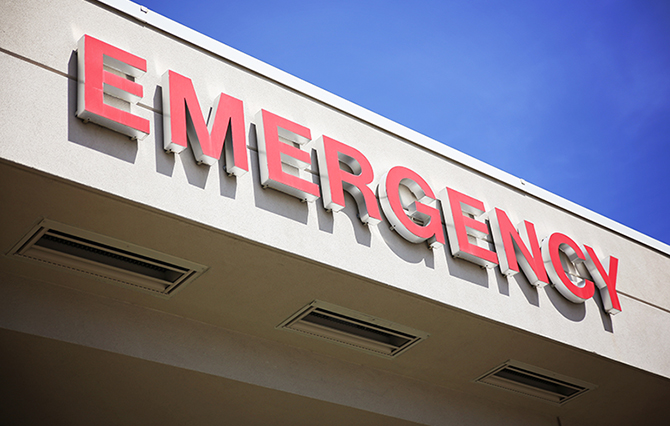
Need medical attention? Don't make this mistake.
It’s late at night on a weekend and the baby has a fever. Or you can’t sleep because your throat is so sore that even drinking water hurts. There’s really not a good time to get sick, but what are you supposed to do when the doctor’s office is closed?
Your first thought may be the emergency room (ER). But is this really an emergency? If no one’s bleeding non-stop, has a broken bone, or displays other serious, life-threatening symptoms—stop and take a breath. You’re (understandably) scared and just want the pain to go away, but here’s the thing … it’s going to cost you A LOT more to use the ER if it’s not a real emergency. Plus, you may wait for hours to see a doctor while the staff tends to the most serious issues first—all with your screaming child in tow, don’t forget.
So where should you go?
If your doctor has an after-hours nurse line, that’s a good place to start—they know you, they have your medical records, they can give you medical advice, and they can reach your doctor if needed (including if you need a prescription). It’s probably a free service, but be sure to ask.
If your doctor doesn’t have a nurse line, chances are your medical insurance carrier does (check the back of your medical ID card or check with your carrier), and it’s probably a free service to you too. The carrier’s nurse line will tend to be very cautious though, since the insurance companies don’t have your medical records and will want to avoid risk. So, after they ask you some key questions to determine how bad the situation is, if there’s doubt, they may be more likely to direct you to the ER.
Urgent care is usually a good choice if it’s not an emergency but you can’t wait it out. Here’s why:
- You’ll get most of the same diagnosis and treatment options as you would at your doctor’s, with some added lab and X-ray capabilities.
- Most urgent care facilities are open late, with walk-in availability.
- The bill will be a lot less than what you’d pay at the ER. Just make sure you use in-network facilities to save the most.
The bottom line: Don’t panic and head straight to the ER before considering all of your options. There may be a more convenient, lower-cost course of action. That’s not always (or ever) easy if you’ve got a suffering child or when you’re in pain, but it may benefit you in the long run.
Benefits and services available may vary from plan to plan—please refer to your plan’s Summary Plan Description for exact coverage details. This article is not intended to provide medical advice. Aon does not recommend or endorse a particular course of medical treatment. If you have any questions concerning your medical condition or any drugs, treatment plans, or new symptoms, consult your health care provider.
© 2026 Aon plc. All rights reserved.